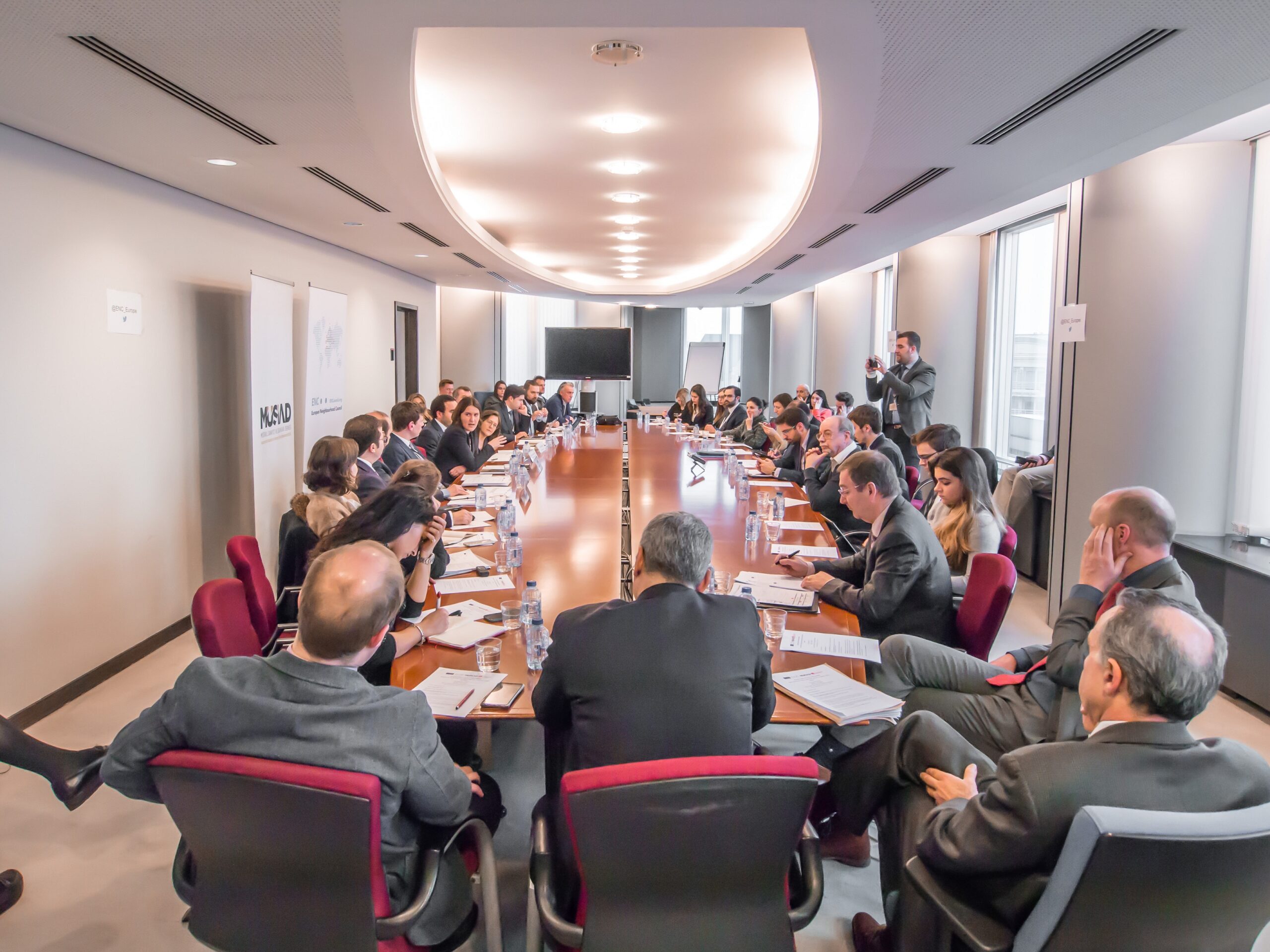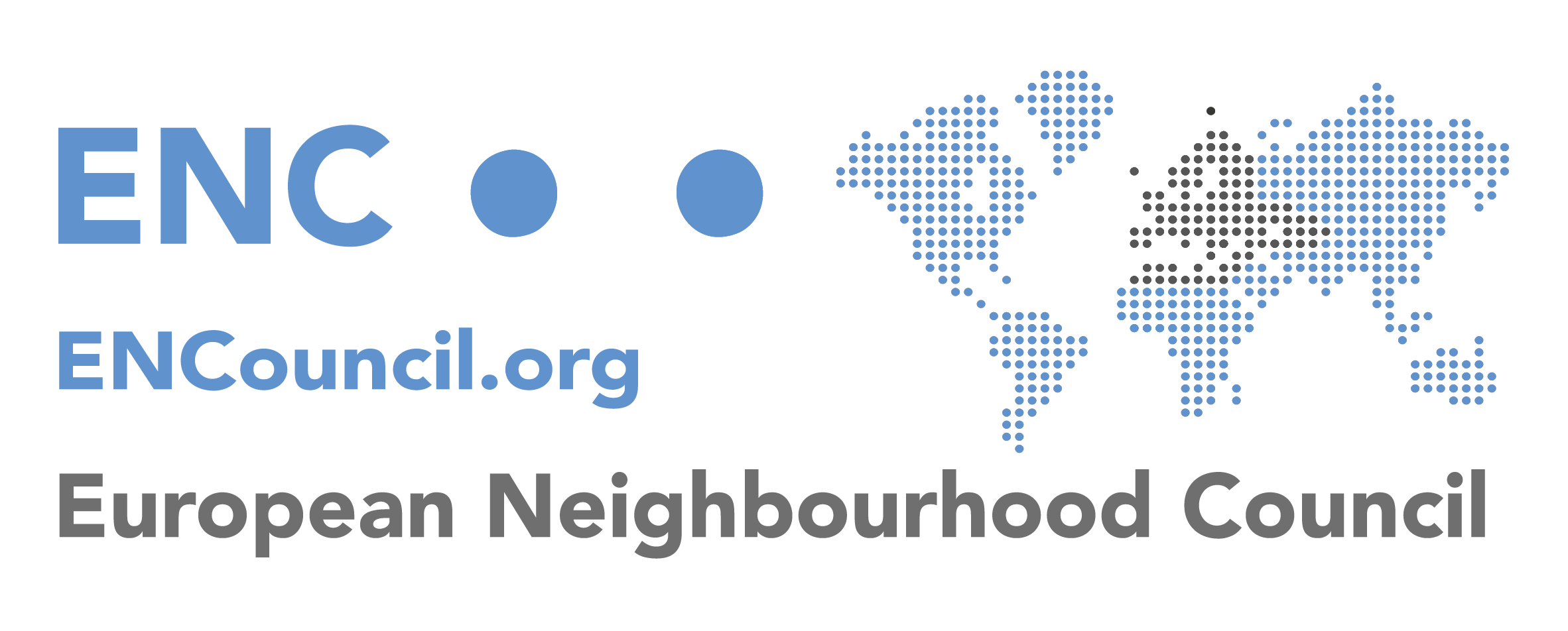 European Training Programme 2018-2019: Unlocking the Workings of the EU
European Training Programme 2018-2019: Unlocking the Workings of the EU
Module 1
Learn more about how the EU institutions and policy-making works through the European Training Programme.
TRAINING OVERVIEW:
The programme aims at providing a thorough understanding of the EU’s internal workings on a variety of different topics, ranging from external relations in trade, energy and investment to security, innovation, and banking reforms.
Offering 12 topic-specific sessions, the participants will be able to gain multiple insights from different backgrounds. In particular, each session will be constructed in two parts, the first of which will feature a keynote speaker from the EU institutions, who will provide an institutional perspective and introduction to the specific topic.
The second part of each session will encompass a contribution from the rest of the panel, the composition of which varies each week according to the topic in question. Generally speaking, the second part of the panel will be comprised of two experts: one corporate and one academic or expert speaker from NGOs, Academia, Private Sector, Industrial Associations etc.
Each session will also include a short break between the two parts, which will give the participants ample opportunity to exchange ideas with the speakers.
In this way, you will leave the training having gained a comprehensive view on a vast number of EU-interested issues.
TARGET AUDIENCE:
The programme is dedicated to diplomats, EU officials, the private sector, NGOs, and individuals who are interested in deepening their knowledge on the workings of the EU institutions.
FEES:
350€ (VAT excluded)
PRACTICAL INFORMATION:
The programme will be repeated in three modules:
- 1st Module: 09/04/2018-30/06/2018
- 2nd Module: 01/10/2018-17/12/2018
- 3rd Module: 21/01/2019-08/04/2019
Each module will last 12 weeks, with a two-hour session per week.
DRAFT PROGRAMME:
Week 1
Date & Time: 10/04/2018, 10.00-12.00
Venue: European Neighbourhood Council (Rue Washington 40, 1050 Ixelles)
Topic: EU structures and decision-making under Lisbon Treaty provisions (EU institutions and their interaction/Impact of BREXIT on EU governance, policy formulation and decision making)
Keynote Speaker: Dave Keating, Journalist
Panel:
Dr. Seda Gurkan, Lecturer at Université libre de Bruxelles (ULB)
Petr Novak, European Parliament – Administrator – Constitutional Affairs (AFCO)
Moderator: Samuel Doveri Vesterbye, ENC Managing Director
Week 2
Date & Time: 17/04/2018, 10.00-12.00
Venue: European Neighbourhood Council (Rue Washington 40, 1050 Ixelles)
Topic: EU structures and decision-making under Lisbon Treaty provisions (The EU budget/Strengthening of the EU economic governance in the aftermath of the financial crisis)
Keynote Speaker: Prof. Michele Chang, Professor at College of Europe (Bruges)
Panel:
Andrej Stuchlik, Policy Adviser, European Investment Bank (EIB)
Leo Hoffmann-Axthelm, Research & Advocacy Coordinator at Transparency International EU
Moderator: Dr. Andrea Mogni, ENC External Advisor & Senior Expert at the Global Governance Institute.
The subscription to the programme is valid for all three modules, in case of unavailability to attend certain sessions.
Week 3
Date & Time: 23/04/2018, 10:00-12:00
Venue: European Parliament, Altiero Spinelli A5G-1
Topic: EU Thematic (internal) Policies (1): (Sustainability – environment, circular economy and climate change issues, including financing for adaptation and mitigation)
Opening Remarks: Ilhan Kyuchyuk, MEP (ALDE) & AFET Member
Keynote Speaker: Wendel Trio, Director at Climate Action Network
Panel:
Niels Schuster, International Relations Officer, DG CLIMA
Dr. Katja Biedenkopf, Assistant Professor at Leuven International and European Studies, KU Leuven
Moderator: Samuel Doveri Vesterbye, ENC Managing Director
Week 4
Date & Time: 30/04/2018, 10.00-12.00
Venue: European Parliament, Altiero Spinelli A5G-1
Topic: EU Thematic (internal) Policies (2): Innovation (Innovation Union, Digital Europe, Connecting Europe, Horizon 2020 and annual action plans, Smart cities)
Keynote Speaker: Helen Kopman, Deputy Head of Unit, Start-ups & Innovation, DG Connect
Panel:
Louis Papaemmanouel, Expert in Funding for Startups and SMEs, Director of EU Startup Services
Domenico Rossetti di Valdalbero, Deputy Head of Unit at the European Commission, Research and Innovation (RTD)
Moderator: Dr. Andrea Mogni, ENC External Advisor & Visiting Professor at Saint Louis University.
Week 5
Date & Time: 08/05/18, 10.00-12.00
Venue: InfoPoint Europa, Rue Archimede 1, (1st floor)
Topic: EU Thematic (internal) Policies (3): Investment (The EFSI programme and EU policies and incentives to attract FDI to Europe)
Keynote Speaker: Lucas Lenchant, Policy Advisor at the European Investment Bank (EIB)
Panel:
Jacek Truszczynski, Policy Coordinator at DG ECFIN
James Watson, Director of Economics at Business Europe
Moderator: Dr. Andrea Mogni, ENC External Advisor & Visiting Professor at Saint Louis University.
Week 6
Date & Time: 14/05/18, 10:00-12:00
Venue: European Parliament, Altiero Spinelli A5G-1
Topic: EU Thematic (internal) Policies (4): Industrial Development (SMEs development and their internationalization-COSME programme and the role of the EIB)
Keynote Speaker: Giacomo Mattino, Head of Unit – Enterprise Europe Network and Internationalisation of SMEs, DG GROW
Panel:
Maria Pia Vigliarolo del Colombo, Policy Officer – SME policy activities and mainstreaming of SME policy, DG GROW
Armando Melone, Policy Officer – COSME Financial Instruments, DG GROW
Moderator: Andreas Marazis, ENC Head Researcher for Eastern Europe & Central Asia
Week 7
Date & Time: 22/05/18, 10:00-12:00
Venue: InfoPoint Europa, Rue Archimede 1, (1st floor)
Topic: Trade and Foreign Investment Policies and Issues (1): EU Trade Policies and the new EU anti-dumping legislation/EU Market Access and rules of origin provisions in the context of globalized supply chains
Keynote Speaker: Fabrice d’Aprile, Deputy Head of Unit General Policy and WTO relations, relations with industry, DG TRADE
Panel:
Deniz Servantie, Independent Consultant
Eleonora Catella, Senior Adviser, Business Europe
Moderator: Dr. Andrea Mogni, ENC External Advisor & Visiting Professor at Saint Louis University.
Week 8 (postponed)
New Date & Time: 02/07/18, 10.00-12.00
Venue: InfoPoint Europa, Rue Archimede 1, (1st floor)
Topic: Trade and Foreign Investment Policies and Issues (2): New Risks (fiscal dumping, competitive devaluations, exchange rate manipulations)/The EU in WTO
Keynote Speaker: Guus Houttuin, EEAS Adviser Trade Issues and Business Coordinator
Panel:
Prof. Pierre-Guillaume Meon, Professor of Economics at Université Libre de Bruxelles (ULB) and Director of the Centre Emile Bernheim
Dominique Orsini, Managing Director, Political Edge
Moderator: Dr. Andrea Mogni, ENC External Advisor & Visiting Professor at Saint Louis University.
Week 9
Date & Time: 06/06/2018, 10.00-12.00
Venue: European Parliament, Altiero Spinelli, A1E-1
Topic: Trade and Foreign Investment Policies and Issues (3): The EU and International Sanction Regimes/The EU’s FTA, BIT, CU, DCFTA, EPA, EBA, PCA and AA negotiations and agreements
Keynote Speaker: Balazs Kiss, Policy Coordinator at DG Trade
Panel:
Martin Russell, Research Administrator at European Parliament
Dr. Laura Puccio, Research Administrator at European Parliament
Moderator: Samuel Doveri Vesterbye, ENC Managing Director
Week 10
Date & Time: 12/06/2018, 10.00-12.00
Venue: InfoPoint Europa, Rue Archimede 1, (1st floor)
Topic: Trade and Foreign Investment Policies and Issues (4): Development policies and policies towards the countries in transition (BRICs, ACPs, transition countries in the EU Neighbourhood and the Balkans)/Investment facilitation instruments (the role of the EIB, EBRD and European Investment/Development financial institutions)
Keynote Speaker: Franco Conzato, Deputy Head of Unit, Results and Business Processes DEVCO confirmed
Panel:
Paulus Geraedts, Team Leader, Outreach and investment services, Secretariat of the External Investment Plan, European Commission
Fernando Nino-Page, Policy Officer, Neighbourhood South, Maghreb, DG NEAR
Moderator: Samuel Doveri Vesterbye, ENC Managing Director
Week 11
Date & Time: 20/06/2018, 10.00-12.00
Venue: European Parliament, Altiero Spinelli, A5G-1
Topic: EU External Policies: (Public Diplomacy/Strategic Communication/Human Rights/EU and Civil Society Organisations (EU external instruments (EIDHRs, Partnership Instrument, Instrument for Stability, thematic DCI))
Keynote Speaker: Pietro De Matteis, Advisor on Public Diplomacy at the EEAS
Panel:
Tika Tsertsvadze, International Advocacy Manager – International Partnership for Human Rights (IPHR)
Anneli Ahonen, East Stratcom Task Force, Strategic Communications, EEAS
Moderator: Andreas Marazis, ENC Head Researcher for Eastern Europe & Central Asia
Week 12
Date & Time: 26/06/18, 10.00-12.00
Venue: InfoPoint Europa, Rue Archimede 1, (1st floor)
Topic: EU policies and instruments in the fields of Security, Defence, anti-Terrorism and Migration (EU relations with the UN and NATO/The role of the European Defense Agency)
Keynote Speaker: Samuel Doveri Vesterbye, ENC Managing Director
Panel:
Elena Lazarou, Senior Policy Analyst, European Parliamentary Research Service (EPRS)
Shahr-yar Sharei, Executive Director – Center for United Nations Constitutional Research (CUNCR)
Moderator: Andreas Marazis, ENC Head Researcher for Eastern Europe & Central Asia
With the exception of the first two sessions, the remaining ten meetings will be evenly distributed between the European Parliament and the Infopoint Europa (Rue Archimede 1, 1st floor).
The registration is now open for participants who wish to attend the first cycle of trainings. Due to limited seats available you are encouraged to register early by sending an e-mail to media@encouncil.org using “European Training Programme” as a subject.
For more information regarding the topics, check the European Training Programme brochure below.
 European Training Programme Brochure
European Training Programme Brochure


 European Training Programme 2018-2019: Unlocking the Workings of the EU
European Training Programme 2018-2019: Unlocking the Workings of the EU